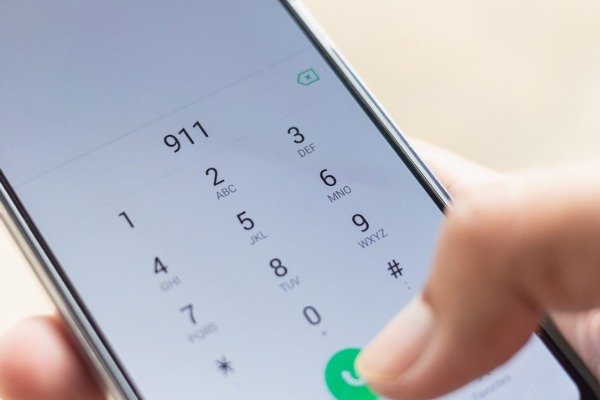Getting the Law Involved Is Tough, but Sometimes Necessary
Loving someone who’s battling addiction is a struggle in and of itself. You suffer alongside them, worry about them constantly, and are always trying to think of some way to save them from themselves. You just want the fight to end and for them to be happy. You may have to make many difficult decisions before that happens, though. There may even come a time when you have to call the police on your loved one who is dealing with addiction.
When is it an appropriate time for it, though? What are the circumstances where it’s a good idea to call in law enforcement? Here’s a breakdown of when you should consider making that call.

They’re an Immediate Danger to Themselves or Others
The first condition is probably the most obvious . If your loved one is posing an immediate threat to themselves or people around them, this is definitely a good reason to call 911 .
This could mean several things. For one, their addiction may be making them “not act like themselves” and they can become aggressive, abusive, violent, or threatening. Alternatively, they may be driving under the influence, putting other drivers on the road at risk. Finally, if you think they might harm themselves or put their own life in danger, whether intentionally or via overdose, you should pick up the phone .
If a stranger were acting violently or threatening harm on themselves or others, you’d probably not have much of a problem calling the police. Yet when it’s your loved one and you’re used to seeing them as a victim you’re responsible for, you might be more resistant to seeing it this way. Remember, though: lives may be at stake, and a bit of time in jail could save your loved one’s life.
They’ve Gone Missing
If you don’t know where your loved one is and can’t get a hold of them to confirm what’s going on, you’re naturally going to panic. You don’t know if they’re in trouble, or under the influence, or overdosing, or passed out, or in a heated confrontation, or any other scenario. This is an emergency that warrants police involvement.
The sooner you file a missing persons report, the more likely they’ll be able to find your loved one . When you call, have the following information ready:
- Physical Description: Height, weight, hair color, and eye color, as well as identifying features like glasses, braces, tattoos, birthmarks, and scars.
- Clothing: Do you know what they were wearing?
- Circumstances: When they were last seen, what they were doing, what plans they had, who they were with, and any other potentially relevant details.
- Medical Problems and Medications: This includes telling them about the addiction. Be honest about this, including drug choice, amount and frequency of use, and multiple addictions.
- Photo: If you have a recent photo of your loved one, provide it to police.
Don’t freeze up and try to wait it out because you don’t want them to get in trouble. In this situation, your loved one’s life might be in danger, and this is far more important than worrying about them facing legal troubles. At any rate, unless they’re committing crimes or possess a large amount of drugs with intent to distribute, it’s unlikely they’ll face any major charges.
You’ve Tried Everything Else Possible
Not every condition on this list is an immediate emergency in the same sense, though. Sometimes, the emergency simply is your loved one’s addiction. Calling the police on them can be a useful last ditch effort to break the addiction or keep them safe .
Call in law enforcement when your loved one is in possession of drugs or under the influence, and you can land them in jail for a bit and possibly drug court. This means less immediate danger and more potential access to help.
However, calling the police on your loved one as an intervention should only be a last resort. Make sure you really have tried everything else before you try this tactic. Before calling in police officers, have you sought out help in other places? Have you looked into counseling and therapy? What about interventions, special schools, or treatment programs and rehab centers? Make sure you’ve tried everything else to help your loved one before you breach their trust by involving law enforcement.
There are plenty of other options you can try before you get to the point of having to call the police on your loved one. If you’re still looking for other sources of help, give New Directions Addiction Recovery Services a call at (779) 220-0336 . We can help talk you through the situation and direct you to treatment options suited to your needs. We’re always here to try and help guide you and your loved one in new directions.
The post Should I Call the Police on My Addicted Loved One? appeared first on New Directions Addiction Recovery Services.
